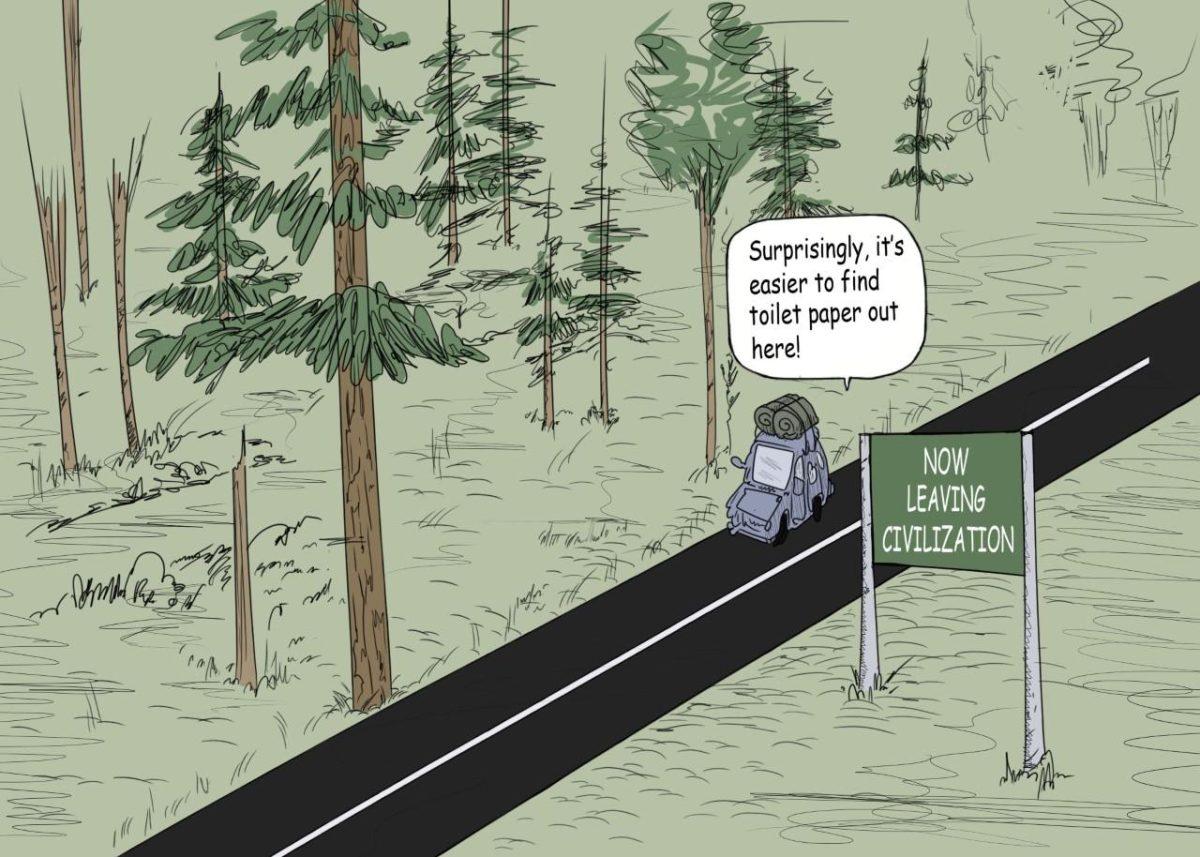This is the first piece in a series of first-person accounts of how students are dealing with the coronavirus pandemic, written by the Reveille’s opinion columnists.
I never imagined I would live to see the world like this. My bewilderment is not noteworthy or unique. The entire planet is perplexed. However, I cannot help but feel lost in the disorienting storm that has abruptly raged throughout the past week.
I say “abruptly” since it relates to my delayed exposure to the reality of global panic. Lately, I’ve been eating my fair share of crow, poorly cooked by an earlier op-ed of mine. With a headline declaring, “Coronavirus is Overblown,” I denounced mass panic as ridiculous, and confidently argued that media outlets were responsible for inflating COVID-19 beyond any actual threat that it posed.
The virus was not an imminent threat to me then; it barely affected my life. Needless to say, a soft eviction from my residence hall, the lockdown of my city and a message from my cardiologist warning that I am a higher-risk patient were more than enough to catch my attention and move me toward a reassessment of these brash convictions.
Is Coronavirus not as dangerous as the incessant media coverage is making it out to be? I have no idea. I am not an epidemiologist. This may be a truism, and might even seem a tad melodramatic, but the status quo we have all come to trust and orient our lives around has, for the time being, been compromised.
Watching the world vanish into quarantine is especially jarring. I’m curious to know if what we are experiencing is the first of its kind. Of course, humanity has faced global threats and epidemics in the past; however, I’m not so sure that we’ve ever had the technology to coordinate such a rapid, coherent and collective response like we are seeing now.
In an attempt to make the most of social distancing, a few friends and I have fled the contagious streets of our native New Orleans to self-quarantine in an isolated fishing camp off the Jourdan River, near Bay St. Louis. The basic idea is eerily reminiscent of a horror movie premise. My nerdy English major brain immediately made it out be something like a contemporary American version of Boccaccio’s “The Decameron.”
Away from the crowding of the city and suburbia, quarantine no longer means being locked in a room. The woods and the river are open, empty and coronavirus-free. It’s strangely comforting, maybe normalizing, to worry about the familiar old perils of the outdoors. Out here, snakes, spiders and poison ivy are bigger threats than catching Coronavirus.
However, there is an inescapable tension in the atmosphere. Despite the fun and relative safety, I’m obviously finding it difficult to think of this time in the terms of a spring break trip or vacation. It still feels like we’ve run from something; like we’re displaced.
The camp, the hastily packed luggage and the worsening news all evoke a special breed of uneasiness that can only be understood in the context of evacuation. Having been born and raised in New Orleans, this is an August-September hurricane feeling; I’m not supposed to feel this way in March.
Late at night, when everything goes dark and quiet along the river, murmurs of the ensuing chaos can’t help but invade your thoughts like the cyclical cognizance of background noise. Moments like these also provide me with a healthy reminder of our transience and relative significance.
Seemingly world-defining disorder is put into the perspective of time and my subjective perception. As the human world screeches to a halt, the forest and the river go about their daily business, uninterested and unbothered.
Evan Leonhard is a 19-year-old English and philosophy freshman from New Orleans, Louisiana.
Coronavirus diaries: Living in a fishing camp off of the Jourdan River
March 18, 2020
Coronavirus in the woods








